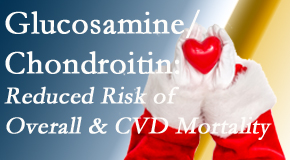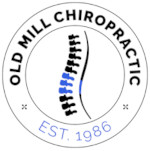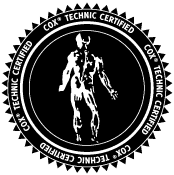St Peters Supplementation with Chondroitin and Glucosamine Shown to Reduce Overall and Cardiovascular Disease Risk of Death
Heard of glucosamine sulfate? Chondroitin sulfate? How about arthritis, disc disease, and heart disease? Today’s St Peters chiropractic patients have. Glucosamine and chondroitin’s benefits – natural compounds found in cartilage - have escalated to the level of common knowledge, making their combination supplements quite well used for disc and joint issues and now for cardiovascular disease and overall mortality reduction. That’s some news! Old Mill Chiropractic is happy to share the bonus benefits of glucosamine/chondroitin supplementation.
GLUCOSAMINE USE REDUCED RISK OF DEATH FROM CANCER AND RESPIRATORY DISEASE
A 2012 study of 77,510 Washington (US) state residents in the 50 to 76-year-old range who took glucosamine/chondroitin supplements were involved. They started the study in 2000-2002 and followed up in 2008. Researchers revealed that current use of glucosamine significantly decreased the death risk of cancer. Further, a large risk of death decrease caused by respiratory disease was documented. (1) St Peters chiropractic patients may not have realized that.
GLUCOSAMINE USE REDUCED RISKS OF CARDIOVASCULAR DISEASES
Further, a study of 466,039 glucosamine-taking participants (started in 2006-2010 and followed up in 2016) revealed that habitual use of glucosamine to ease osteoarthritis pain also may lead to lessened risks of cardiovascular issues like stroke, coronary heart disease, and cardiovascular disease death. (2) Old Mill Chiropractic is grateful for the expanding list of benefits for glucosamine use.
GS/CS SUPPLEMENTATION REDUCED OVERALL MORTALITY AND CARDIOVASCULAR MORTALITY
Then, these earlier papers grabbed the attention of Dana King, MD, an enthusiastic bicyclist who took glucosamine/chondroitin for arthritis and found many bicycling friends did as well. (3) She and colleagues further studied this topic and published its results in the Journal of the American Board of Family Medicine. Benefits of glucosamine/chondroitin supplementation and mortality – overall mortality and cardiovascular mortality – are listed. The findings also support the 2012 and 2019 papers just shared. 16,686 US participants were followed in the National Health and Nutrition Examination Study from 1999 to 2010. 658 of them had been taking glucosamine/chondroitin for at least 12 months. These participants were found to be less likely to die due to cardiovascular disease issues by 65% and less likely to die due to overall/all-cause issues by 39%. (4) Old Mill Chiropractic surely recognizes the benefit of glucosamine/chondroitin for cartilage related issues like osteoarthritis, disc disease, and joint pain and is heartened to see its benefit spread beyond these issues for our St Peters chiropractic patients.
SUPPLEMENTATION NOT SUBSTITUTION
Talked to for an interview with the journal, Bicycling, lead researcher in the 2020 paper, Dr. King dubs the results “encouraging” but adds that taking supplements is not a substitute for exercise but their addition is seemingly beneficial from an epidemiological standpoint. (3) Old Mill Chiropractic agrees! Chiropractic care incorporates spinal manipulation, nutrition, and exercise to enhance positive clinical outcomes for pain relief and quality of life. Listen to this PODCAST with Dr. James Cox on The Back Doctors Podcast with Dr. Michael Johnson as he describes how The Cox® Technic System of Spinal Pain Management incorporates nutrition like glucosamine/chondroitin for optimal clinical outcomes.
CONTACT Old Mill Chiropractic
Make your St Peters chiropractic appointment soon. Surely this info on the benefits of glucosamine/chondroitin supplementation piqued your interest whether you have disc/joint/osteoarthritis issues or cardiovascular issues. Old Mill Chiropractic is here to talk about it further!


